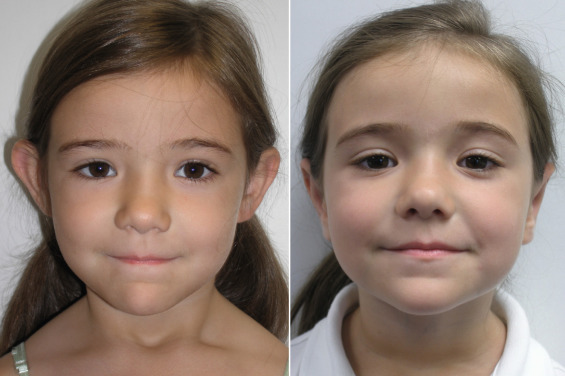Ear Reconstruction in Russian Federation
Search and Compare the Best Clinics and Doctors at the Lowest Prices for Ear Reconstruction in Russian Federation

Find the best clinics for Ear Reconstruction in Russian Federation
No pricing info available
Israel offers the best prices Worldwide
Price: $ 14,755
Doctor Proff, located in Spiridonyevskiy Pereulok, Moscow, Russian Federation offers patients Ear Reconstruction procedures among its total of 90 available procedures, across 1 different specialties. Currently, there's no pricing information for Ear Reconstruction procedures at Doctor Proff, as all prices are available on request only. All procedures and treatments are undertaken by the lead specialist at the Hospital, and they are not accredited by any recognized accreditations institutes
- Home
- Russian Federation
WHY US?
At Medijump, we're making medical easy. You can search, compare, discuss, and book your medical all in one place. We open the door to the best medical providers worldwide, saving you time and energy along the way, and it's all for FREE, no hidden fees, and no price markups guaranteed. So what are you waiting for?

Free

Best Price

Widest Selection

Risk-Free
What you need to know about Ear Reconstruction in Russian Federation

Ear reconstruction is a surgical procedure to rebuild a damaged ear caused by trauma, accident or cancer surgery, as well as misshapen or underdeveloped ear due to a disorder present at birth (congenital). There are several types of ear reconstruction, including microtia repair (creating an ear for people with an inborn condition where their outer ears are malformed, small, or absent), otoplasty (to make the earless prominent), and ear defect repair (to restore the form and function of the outer ear after trauma, accident, or cancer surgery).
What Does the Procedure Involve?
All types of ear reconstruction can be performed under local or general anesthetic. The first stage is creating the ear, your surgeon may use your own tissue, such as cartilage or skin to reconstruct the ear or use a prosthetic. Then, the next stage is putting the ear into position, so that it appears and looks just like a normal ear would.
How Long Should I Stay in Russian Federation for a Ear Reconstruction Procedure?
Most people can leave the hospital on the same day as the procedure. However, adults with complex cases and children need to stay in the hospital overnight. After you are discharged, you should aim to stay in Russian Federation for 5 to 7 days for follow-up checkups and removal of stitches.
What's the Recovery Time for Ear Reconstruction Procedures in Russian Federation?
You should plan to return to work within 5-7 days if your job is not physically demanding. The total recovery time can vary from two to six weeks. Ask your doctor when you can resume your daily activities, such as exercises and heavy lifting.
What sort of Aftercare is Required for Ear Reconstruction Procedures in Russian Federation?
During your recovery period, you need to avoid sleeping on your side and wear a loose headband that covers your ears at night to keep pressure off your ears. Wear button-down shirts or shirts with loose-fitting collars so you do not have to pull anything up over your head.
What's the Success Rate of Ear Reconstruction Procedures in Russian Federation?
Ear reconstruction has a high success rate of more than 90% and most patients said the result was excellent. Although very rare, there are side effects and risks to be aware of, including infection, scarring, and blood clots. Some people may not be satisfied with the result because the ear placement is asymmetrical or overcorrected, in this case, consult with your surgeon about the possibility of revision surgery.
Are there Alternatives to Ear Reconstruction Procedures in Russian Federation?
Although ear reconstruction is the best option for ear deformity, those who are not able to undergo this procedure can opt for an alternative which is prosthetic ears, which involves inserting titanium pins into the skull to clip the prosthetic ears.
What Should You Expect Before and After the Procedure
Before an ear reconstruction surgery, you may have a birth defect that made your ear malformed or absent, your ears may stick out too far from too much, or too large in proportion to your head. After an ear reconstruction surgery, you will notice a change in the appearance of your ears immediately. The changes are permanent and natural.
Whilst the information presented here has been accurately sourced and verified by a medical professional for its accuracy, it is still advised to consult with your doctor before pursuing a medical treatment at one of the listed medical providers
No Time?
Tell us what you're looking for and we'll reachout to the top clinics all at once
Enquire Now

Popular Procedures in Russian Federation
Prices Start From $370

Prices Start From $28

Prices Start From $167

Prices Start From $120

Recommended Medical Centers in Russian Federation for Ear Reconstruction

- Interpreter services
- Translation service
- Religious facilities
- Medical records transfer
- Medical travel insurance
- Health insurance coordination
- TV in the room
- Safe in the room
- Phone in the room
- Private rooms for patients available

- Interpreter services
- Translation service
- Religious facilities
- Medical records transfer
- Medical travel insurance
- Health insurance coordination
- TV in the room
- Safe in the room
- Phone in the room
- Private rooms for patients available

- Interpreter services
- Translation service
- Religious facilities
- Medical records transfer
- Medical travel insurance
- Health insurance coordination
- TV in the room
- Safe in the room
- Phone in the room
- Private rooms for patients available

- Interpreter services
- Translation service
- Religious facilities
- Medical records transfer
- Medical travel insurance
- Health insurance coordination
- TV in the room
- Safe in the room
- Phone in the room
- Private rooms for patients available

- Interpreter services
- Translation service
- Religious facilities
- Medical records transfer
- Medical travel insurance
- Health insurance coordination
- TV in the room
- Safe in the room
- Phone in the room
- Private rooms for patients available
Ear Reconstruction in and around Russian Federation
The Russian Federation, or Russia, is a transcontinental country that stretches over a vast expanse of Eastern Europe and northern Asia. Once a mighty tsarist empire and a communist superpower, this massive country is enigmatic, intimidating, and fascinating all at the same time. It has everything, from the idyllic countryside and historic cities to scenic beauty and artistic riches. Today, Russia is a famous medical tourism destination. The number of medical tourists seeking high-quality healthcare continues to double each year. These medical tourists mainly come from Asian countries, such as China, South Korea, India, Japan, and Vietnam. They come to receive a wide range of medical care, with IVF treatment, dental services, cosmetic surgery, and cardiovascular surgery being the most sought-after.
Popular Parts of the Russian Federation
Most visitors are drawn to the western part of the country, particularly to Moscow and St. Petersburg. Moscow, the capital of Russia, is popular for its show-stopping architecture, rich history, amazing culture, and great food. Some of the most famous landmarks are the St. Basil’s Cathedral, the Red Square and the Lenin Mausoleum, the Moscow Kremlin, The Tretiakov Gallery, and the Wooden Palace of Tsar Alexei Mikhailovich. St. Petersburg, Russia’s second city and imperial capital, is one of the most gracious cities in Europe. People come to this city to visit the State Hermitage Museum, the Grand Palace, and Catherine Park.
Weather and Climate in the Russian Federation
There are four seasons in Russia. December to February are the winter months, which is cold and snowy, with short days and long nights. The average temperature during this season is around -10°C to 3°C. Spring comes in March, bringing warmer, but rainy weather. Summer, from June to August, is hot and humid, with an average temperature of around 12°C to 26°C. The weather can be quite unpredictable in the summer, and downpours can come unexpectedly. Autumn is from September to October and is warm and pleasant.
Getting around in the Russian Federation
The largest airport in Russia that receive the most international flights is Sheremetyevo Alexander S. Pushkin International Airport in Moscow. It serves both domestic and international flights to many cities around the globe. Since Russia is the world’s largest territory, internal flights are the fastest and most convenient way to get around. Trains have an extensive network, and, with many comfortable overnight services, is considered as the best way to get around. Buses are a great option to travel to the areas not covered by the train. Some really remote destinations may only be reached by private cars or taxis. Taxis are relatively inexpensive and widely available.
Tourist Visas in the Russian Federation
Nationals of 62 nations, including Brazil, South Africa, South Korea, North Macedonia, and Hong Kong, can visit and stay in Russia without a visa for a period of 14 to 90 days. Citizens of other countries not listed in the visa exemption agreement need a visa to enter. Electronic visas are available for citizens of several countries, including all EU countries, China, and India.
Additional Information
- Local Currency: Russian uses the Russian ruble (RUB) as its official currency. 1 USD is equivalent to 77.16 RUB.
- Money & Payments: The easiest way to get rubles is by using ATMs, which is available throughout the country. Major credit and debit cards, including MasterCard and Visa, are accepted in larger hotels and restaurants, but cash is more reliable. Some places may offer to accept euros and dollars, but this is illegal. Tipping is expected, around 10% to 15% of the bill. Always tip in cash and give it directly to the waiter.
- Local Language: There are over 100 minority languages spoken in Russia, but the official and most widely spoken language is Russian. English is spoken to some degree, especially in major cities.
- Local Culture and Religion: Most of Russia’s population adheres to Christianity, with the Russian Orthodox Church being the biggest Christian denomination. There are also small groups of Muslims, Buddhists, and Jewish.
- Public holidays: New Year’s Day, Orthodox Christmas Day, Defender of the Fatherland Day, Victory Day, Russia Day, and Unity Day are some of the most important public holidays in Russia.
Popular Searches
- Plastic Surgery in Thailand
- Dental Implants in Thailand
- Hair Transplant in Thailand
- Breast Augmentation Thailand
- Gastric Sleeve in Thailand
- Gender Reassignment Surgery in Thailand
- Laser Hair Removal in Bangkok
- Botox in Bangkok
- Dermatology in Bangkok
- Breast Augmentation in Bangkok
- Coolsculpting in Bangkok
- Veneers in Turkey
- Hair Transplant in Turkey
- Rhinoplasty in Turkey
- Stem Cell Therapy in Mexico
- Rhinoplasty in Mexico
- Liposuction in Mexico
- Coolsculpting in Tijuana
- Rhinoplasty in Korea
- Scar Removal in Korea
- Gastric Sleeve in Turkey
- Bone Marrow Transplant in India
- Invisalign in Malaysia
- Plastic Surgery in the Dominican Republic
- Tummy Tuck in the Dominican Republic
- Plastic and Cosmetic Surgery in Poland
- Rhinoplasty in Poland
- Hair Implant in Poland
- Dental Implants in Poland
- IVF in Turkey
